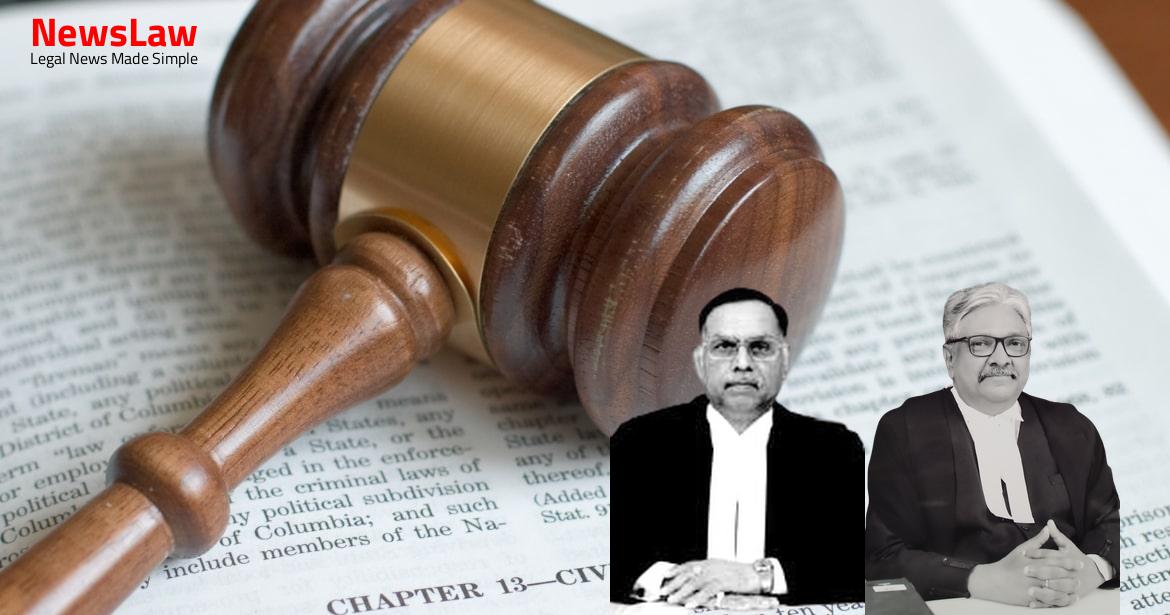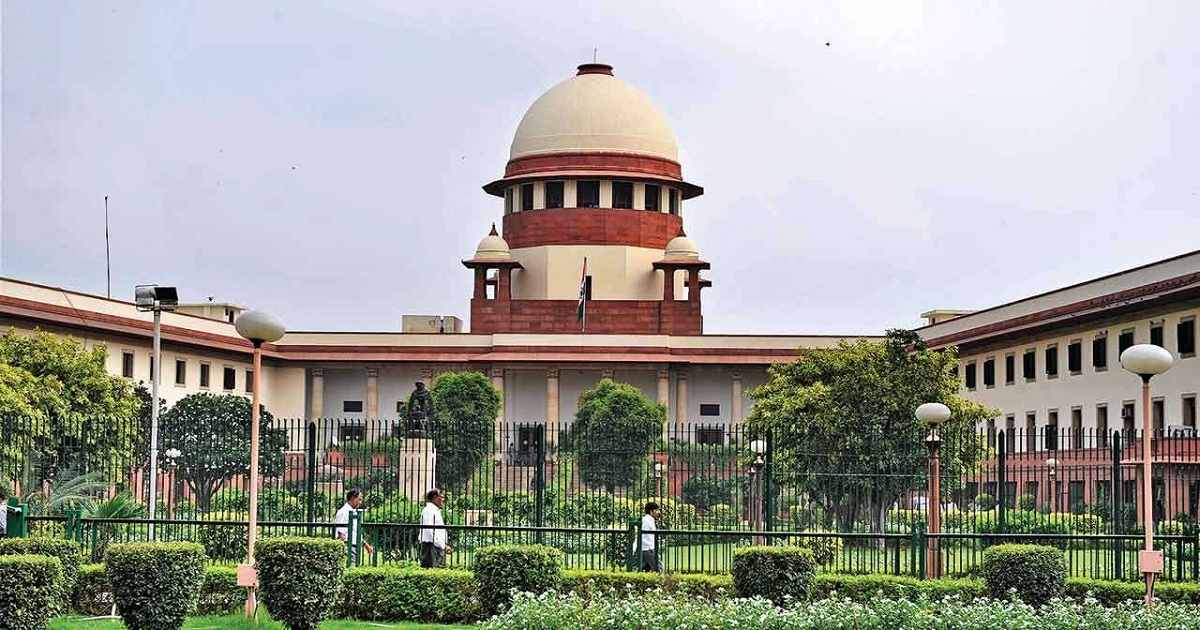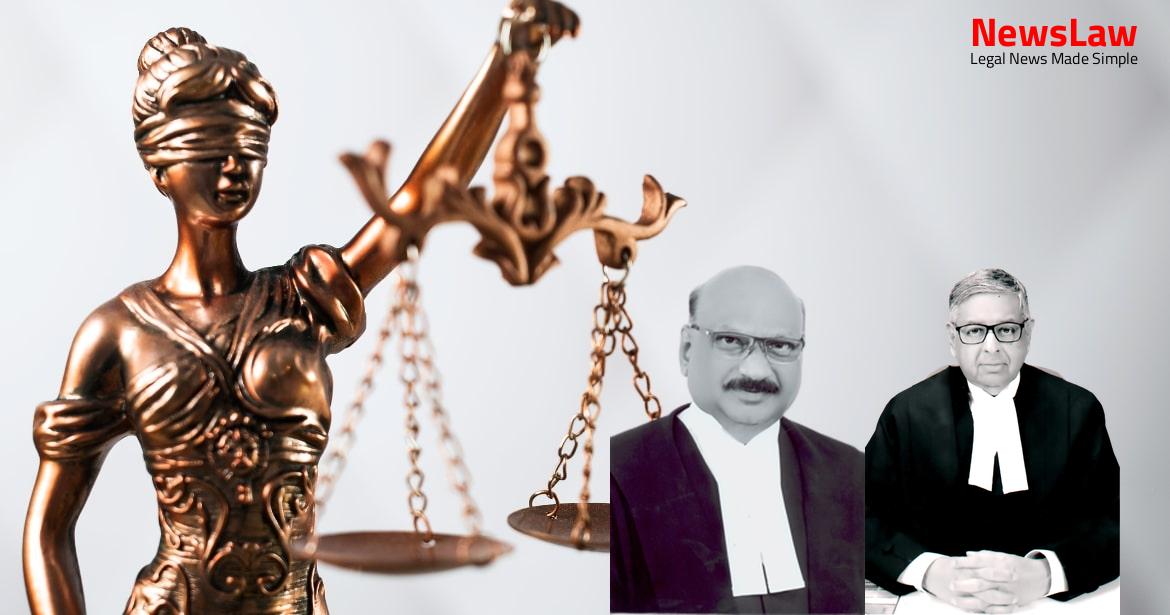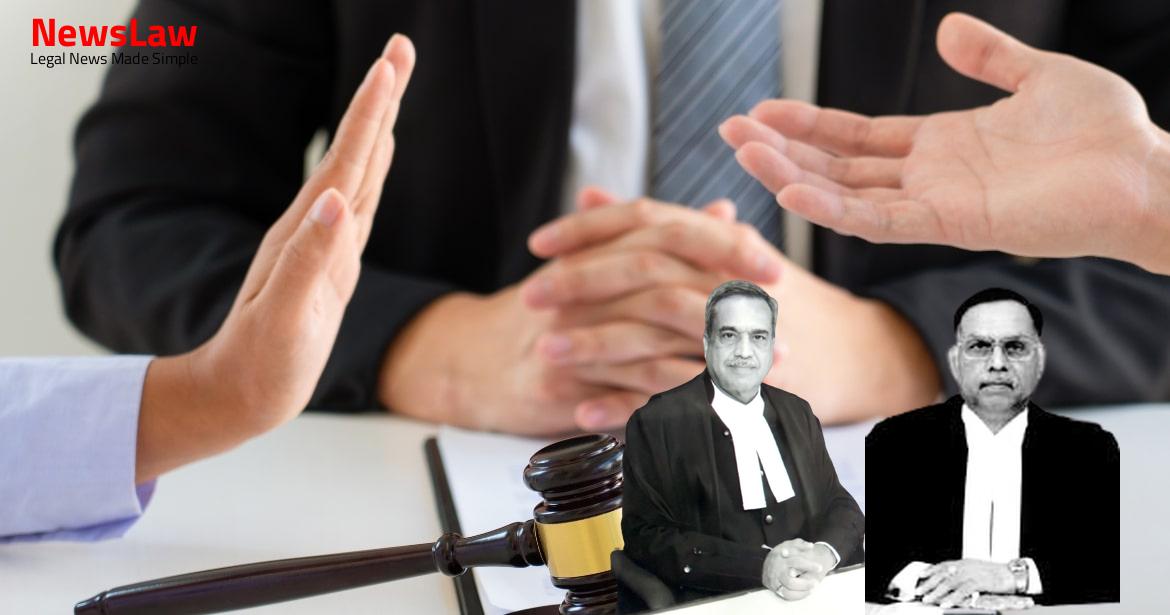In a groundbreaking decision by the Supreme Court of India, the case of Chopra v. State of Uttar Pradesh has reached a pivotal milestone. This judgment marks a turning point in the legal landscape, shaping the future of court proceedings and justice. Stay tuned for more insights on this significant ruling.
Facts
- The order of judgment of divorce was passed after hearing both Nayan Chopra and Vanshika Bobal, who were represented through attorneys.
- Provisions made in the judgment of divorce included alimony, pension benefits, retirement benefits, life insurance, property settlement, provision in lieu of dower, mutual release of claims, and other provisions.
- Facts of the case are being taken from Criminal Appeal No 594 of 2019 – Rashmi Chopra & Ors. vs. The State of Uttar Pradesh & Anr., in which criminal appeal, reply affidavit, and rejoinder affidavit have been filed.
- Nayan Chopra got married to Vanshika Bobal on 15.04.2012
- Allegations of demanding further dowry of one crore rupees by family members post-marriage
- Nayan Chopra filed a petition for dissolution of marriage in America
- Incident of Nayan Chopra throwing Vanshika out of the house on 01.12.2013
- Alleged incident near Gurudwara, Sector-18, Noida on 08.11.2014 involving demands and threats
- Allegations against Rajesh Chopra, Nayan Chopra’s father, for physical assault and snatching of valuables
- Allegations of one crore rupees demand and abusive language by Rajesh Chopra towards Vanshika
- Summoning of accused persons under Sections 498A, 323, 504, 506 of IPC and Section 3/4 of DP Act
- Filing of application under Section 482 Cr.P.C. for quashing the complaint and proceedings
Also Read: Entitlement to Back Wages: Upholding Justice
Issue
- The Magistrate must determine if there is sufficient ground for issuing a process
- The focus should be on determining if there is enough evidence to proceed, not on the likelihood of conviction
- The standard is not proof beyond reasonable doubt, but merely whether there is a prima facie case to begin the legal process
Also Read: Remand Order Upheld: Legal Analysis in The Case of The National Investigation Agency vs. The State
Arguments
- Learned counsel for the respondent argues that elaborate reasons are not required for summoning the accused by the Magistrate.
- Counsel for the respondent cites the judgment in Rakhi Mishra Vs. State of Bihar and Others, (2017) 16 SCC 772 to support the exceptional circumstances required for invoking Section 482 Cr.P.C.
- It is contended that Nayan Chopra and Vanshika Bobal had already been granted a divorce by the Family Court of Michigan, which was not made known to the Magistrate before the summoning order.
- The complaint is argued to lack prima facie disclosure of any offence under Section 498A and 3/4 of Dowry Prohibition Act against the appellants.
- Allegations in the complaint are described as vague, sweeping, and general, and it is asserted that it should not have been entertained as it was not filed by a competent person.
- The counsel for respondent No. 2 supports the Magistrate’s summoning order dated 17.01.2017, citing Dy. Chief Controller of Imports & Exports Vs. Roshanlal Agarwal & Ors., (2003) 4 SCC 139.
- It is argued that multiple courts having taken a particular view, the interference by this Court may not be necessary.
- The counsel for the appellants contends that the High Court failed to exercise its jurisdiction under Section 482 Cr.P.C. by not quashing the entire complaint proceedings, which are viewed as an abuse of the court’s process.
- It is asserted that the complaint was not filed by Vanshika, and the incident alleged on 08.11.2014 at Sector 18, Noida was deemed false and concocted to implicate Rajesh Chopra.
Also Read: Supreme Court Ruling on Recruitment Rules Challenge
Analysis
- The complaint under Section 498A and Section 3/4 of D.P. Act lacked specific allegations against the applicants, indicating a general and sweeping accusation of harassment.
- The application under Section 156(3) Cr.P.C. appeared to be filed with the intent to harass the applicants, as there was no prior complaint of dowry demand by the girl or her father.
- The complaint was filed as a counter blast to divorce proceedings between Nayan Chopra and Vanshika, with the intention to pressure the applicants.
- The divorce decree granted property division and settlement between Nayan Chopra and Vanshika, indicating a mutual agreement on assets and no mention of harassment allegations.
- The High Court failed to consider the factual matrix of the case and principles of law in the impugned judgment, leading to a lack of understanding of the case’s controversy.
- The judgment in State of Haryana v. Bhajan Lal elaborately discusses the scope and ambit of Section 482 CrPC.
- High Court can quash proceedings following the parameters set in the Bhajan Lal case if deemed necessary.
- The Court enumerated seven categories under Section 482 where power can be exercised including cases of mala fide intentions and malicious proceedings.
- Legislature emphasizes the need to record reasons in certain situations like dismissing a complaint without issuing process.
- When a criminal proceeding is maliciously instituted with ulterior motives, High Court can exercise its jurisdiction to quash in the interest of justice.
- The High Court’s inherent powers aim to prevent court proceedings from becoming tools of harassment or persecution.
- The Supreme Court in various cases has defined the principles governing the exercise of jurisdiction under Section 482 CrPC.
- The ends of justice should prevail over mere legal formalities, and judicial processes should not be used for oppression or harassment.
- Courts must be cautious in involving distant relatives in crimes related to matrimonial disputes unless their specific involvement is proved.
- The High Court’s role under Section 482 CrPC is essential to maintain the balance of justice between the State and its subjects.
- There is no express legal bar engrafted in any provision of the Code or the Act concerned for the institution and continuance of the proceedings
- There is a specific provision in the Code or the Act concerned that provides efficacious redress for the grievance of the aggrieved party
- The specific provision allows for the aggrieved party to seek redress for their grievance
- The case falls under Category 7 as per State of Haryana Vs. Bhajan Lal
- High Court erred in not exercising jurisdiction under Section 482 Cr.P.C.
- Allegations against Rajesh Chopra under Sections 323, 504, and 506 of IPC are supported by complainant and witnesses
- Court cannot determine if the alleged incident happened on 08.11.2014 or if Rajesh Chopra committed the offenses
Decision
- Criminal Appeal Nos.594, 598, 599, 597, and 596 of 2019 are allowed.
- Complaint and summoning order dated 17.01.2017 set aside for the appellants in the mentioned criminal appeals.
- Criminal Appeal No. 595 of 2019 (Rajesh Chopra Vs. The State of Uttar Pradesh & Anr.) partly allowed.
- Complaint and summoning order set aside for the offence under Section 498A and Section 3/4 of D.P. Act but upheld for the offence under Sections 323, 504, and 506 of I.P.C. against Rajesh Chopra.
- Proceedings to continue for the complaint pertaining to offences under Sections 323, 504, and 506 I.P.C. against Rajesh Chopra.
Case Title: RASHMI CHOPRA Vs. THE STATE OF UTTAR PRADESH
Case Number: Crl.A. No.-000594-000594 / 2019



